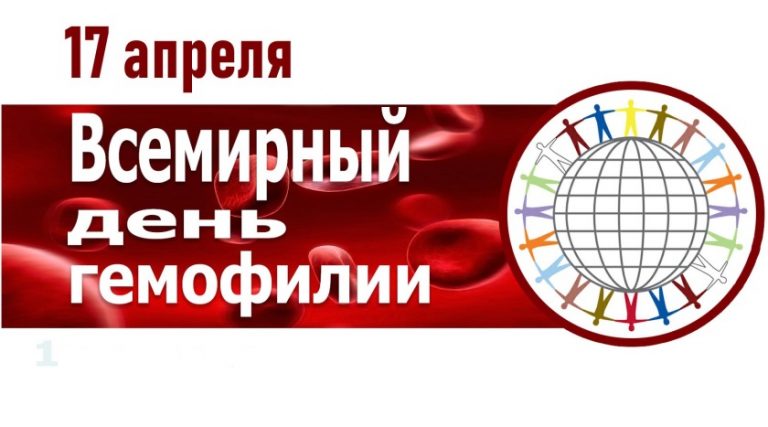Every year, on April 17, at the initiative of the World Federation of Hemophilia (WFH) and the World Health Organization (WHO), World Hemophilia Day is celebrated, which is called on to draw public attention to the problems of people suffering from blood clotting disorders and contribute to improving their quality of life. The date is timed to coincide with the birthday of WFH founder Frank Schneibel and has been celebrated in the world since 1989.
In Russia, World Hemophilia Day has been celebrated since 1996, in 2000 the All–Russian Society of Hemophilia (VOG) was established – a charity organization of disabled people of all-Russian scale. The VOG consists of 70 regional organizations.
Hemophilia (coagulopathy) is a blood disease characterized by increased bleeding, the cause of which is a violation of blood clotting. Normal blood clotting prevents and stops hemorrhages in muscles and joints (hemarthrosis and hematomas), as well as bleeding from cuts and scratches that can occur during the active daily life of any person.
Modern scientific research of hemophilia has been conducted since the XIX century. The term “hemophilia” was first introduced in 1822 by the Swiss physician Friedrich Hopf. The first high-ranking carrier of hemophilia is the English Queen Victoria. In the “inheritance” from her, this disease was received by the reigning families of Germany, Spain and Russia. This ailment is often called “royal” because of the illness of Tsarevich Alexei, the last heir to the throne of the Russian Empire.
All around the world, about 400 thousand people suffer from hemophilia. There are about 11 thousand patients with hemophilia and Willebrand’s disease in Russia who need drug therapy. The average age of patients with hemophilia in Russia today is 36 years.
In the past, the disability of patients with a severe form of the disease reached 90%, today hemophilia A and B are treated with concentrates of the corresponding blood clotting factors, with a severe form of the disease, preventive treatment begins from early childhood. In the Russian Federation, since 2006, all patients suffering from hemophilia (both children and adults) have been provided with free medications, thanks to which significant progress has been reached in improving the quality of life of this category of people, a whole generation of fully socially adapted patients has grown up.
In 2022, World Hemophilia Day is held under the slogan “Access for all: Partnership. Politics. Progress” and is aimed at raising awareness and drawing the attention of politicians to hemophilia and other hereditary disorders of blood clotting.

